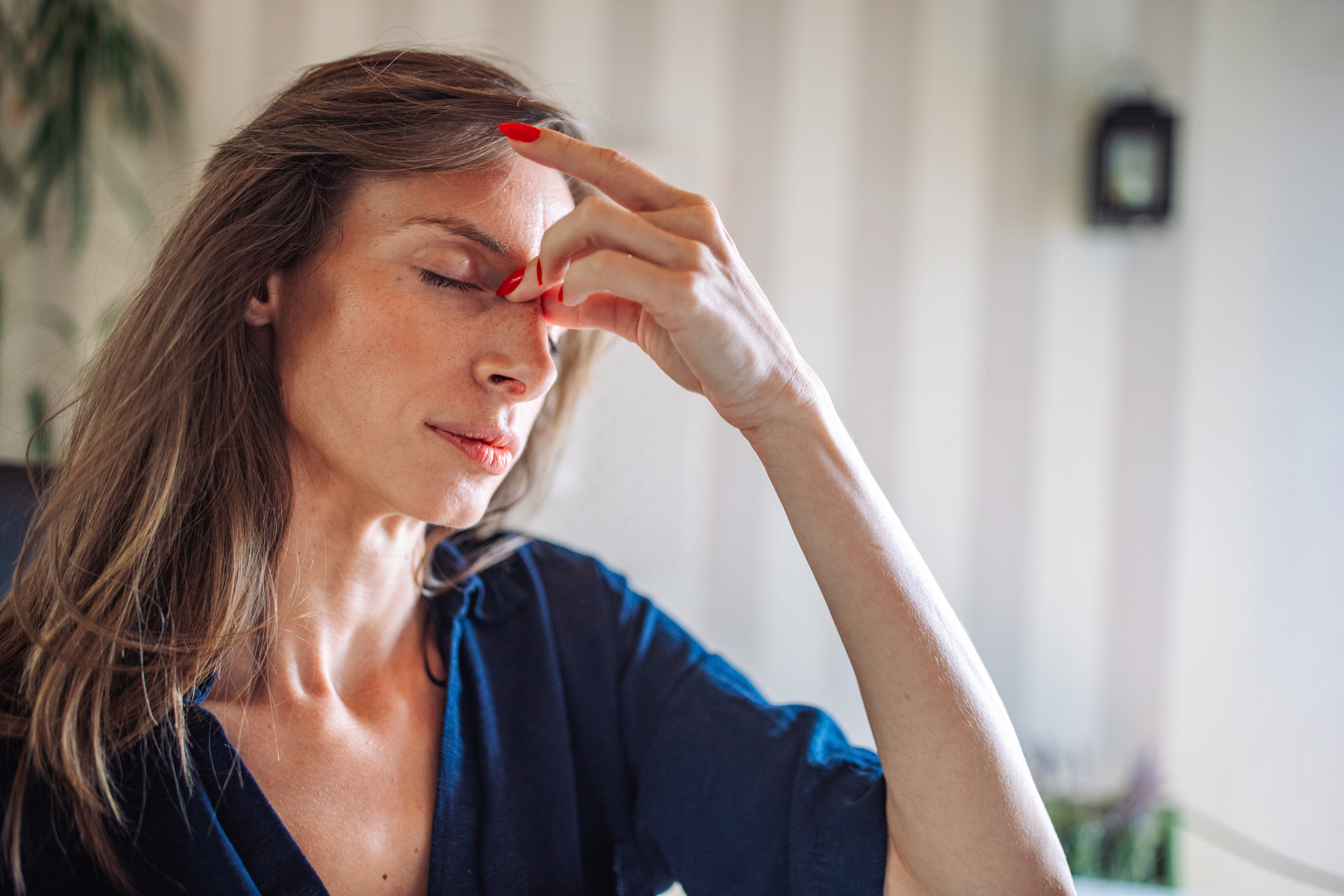Get Easy Health Digest™ in your inbox and don’t miss a thing when you subscribe today. Plus, get the free bonus report, Mother Nature’s Tips, Tricks and Remedies for Cholesterol, Blood Pressure & Blood Sugar as my way of saying welcome to the community!
The overlooked menopause symptom stealing your energy

I’m at the age where I’m experiencing “the change,” as menopause is euphemistically called. I was prepared for hot flashes and night sweats, neither of which I really experienced all that much (thankfully).
What I wasn’t prepared for was the fatigue. I used to be someone who could charge through the day with seemingly limitless energy.
Now, I need a lunchtime nap to feel fully functional, and I often fall asleep on the couch right after dinner.
I asked my doctor why I was feeling so tired all the time, and they gave me the usual hand-waving answer of “you’re just getting older.”
But after doing some digging, I discovered that women in midlife are two to four times more likely to experience debilitating forms of fatigue… and one reason for that fatigue often gets overlooked.
Menstrual bleeding and your energy level
There are multiple menopause symptoms that can make women feel fatigued, including hot flashes, sleep problems, pain and depression. But one team of researchers decided to explore whether abnormal uterine bleeding might be another factor.
In The Study of Women’s Health Across the Nation (SWAN), researchers assessed daily menstrual calendar data from more than 2,300 midlife women to determine whether episodes of prolonged (PMB) or heavy (HMB) menstrual bleeding recorded during the 6 months before a follow-up visit were associated with four specific symptoms of fatigue including feeling worn out, feeling tired, not feeling full of pep, or not having energy.
SWAN revealed that one in three women transitioning through menopause had episodes of abnormal uterine bleeding (AUB), which includes HMB and PMB.
Despite this high incidence, only a few previous studies have focused on the problem, and no known studies have attempted to link AUB to fatigue or decreased quality of life. Heavy menstrual bleeding, particularly, is connected to iron deficiency anemia, which causes fatigue.
The study results concluded that HMB and PMB during the menopause transition were associated with an increased risk of fatigue, even after adjusting for other causes. These findings suggest that greater clinical awareness is needed of menopausal bleeding changes, particularly when fatigue is also reported.
Iron deficiency and related anemia can be easily treated, so early assessment in women with these symptoms could help a lot.
“This study highlights the need for greater clinical awareness of abnormal uterine bleeding, particularly given the increased frequency during the menopause transition and its association with low energy or fatigue symptoms,” says Dr. Stephanie Faubion, medical director for The Menopause Society.
“Educating women about the possibility of prolonged or heavy menstrual bleeding during the menopause transition and the potential health consequences is also needed.”
What to do if you are iron deficient
If you’re going into menopause and notice your menstrual bleeding has gotten much heavier, speak with your doctor. Shopping for a gynecologist who specializes in menopause treatments may be helpful. Treatments, including hormone therapies, may be available that can help.
It’s also imperative for your doctor to determine if an iron deficiency or anemia is present. But beware: they will probably prescribe an iron supplement, and that supplement will likely be ferrous sulfate. This type of iron can irritate your stomach, liver and lymphatic symptoms, and it’s not as well absorbed as other forms of iron.
The most easily absorbed and least irritating iron supplements are ferrous gluconate, iron gluconate and iron picolinate. The usual daily recommended dose of iron for women over 50 is 8 mg per day. Still, if you’re experiencing heavy menstrual bleeding, you should probably stick with the dose of 18 mg per day recommended for women under 50.
Alternatively, you could also take a daily tablespoon or two of blackstrap molasses, giving you up to 20 percent of your recommended daily dosage of iron, calcium, magnesium and potassium.
There are also plenty of food sources of iron you can add to your diet, including:
- Red meat
- Chicken
- Fish
- Eggs
- Barley
- Oats
- Brown rice
- Beans
- Lentils
- Nuts like almonds, pistachios and pecans
- Dark leafy greens like spinach, Swiss chard and kale
Editor’s note: Did you know that when you take your body from acid to alkaline you can boost your energy, lose weight, soothe digestion, avoid illness and achieve wellness? Click here to discover The Alkaline Secret to Ultimate Vitality and revive your life today!
Sources:
Are you just tired or are you menopause tired? — EurekAlert!
Abnormal uterine bleeding is associated with fatigue during the menopause transition — Menopause














